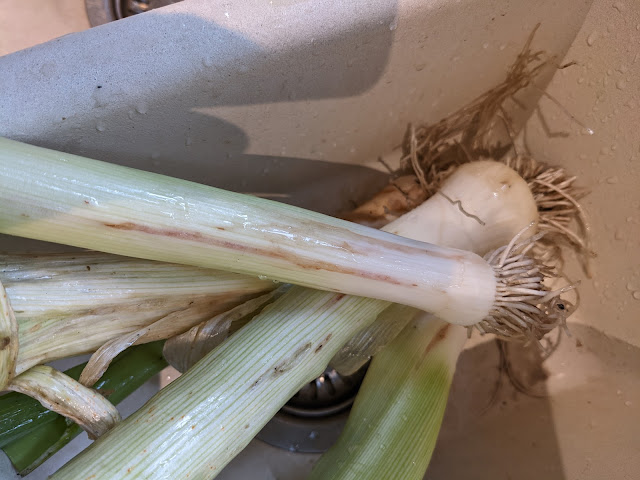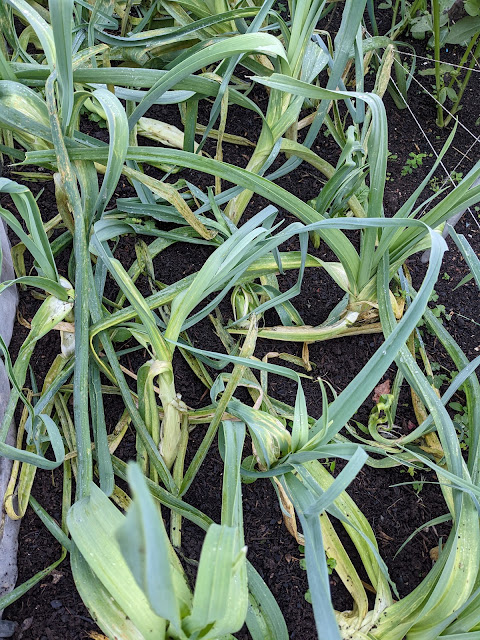Following on from my last update, some bad news regarding the leeks. On 18th November, I dug up some leeks because Mary was making leek and potato soup.
 |
| First leeks of 2022 Season |
The leeks were a decent size bearing in mind the late sowing. Unfortunately, after washing and cleaning it was obvious the Allium Leaf Miner Fly had paid a visit and left its calling card - the telltale brownish streaks.
 |
| Leeks suffering from an attack of the Allium Leaf Miner Fly |
A closer inspection revealed the brown pupae ...
 |
| Brown pupae of the Allium Leaf Miner Fly |
 |
| Close-up of Allium Leaf Miner Pupae |
A survey of the rest of the leek bed showed most of the plants had been infected ...
 |
| Collapsed Leeks after Allium Leaf Miner attack |
The only thing to do was dig up the leeks immediately and rescue whatever I could by stripping off as many of the outer leaves as necessary to get to the unaffected core ...
 |
| Rescued Leeks |
If you leave the leeks in the ground, they will undergo a secondary attack by bacteria/fungi and turn to mush.
If you 'hot compost' as I do, then you can add all the affected outer leaves (and any pupae) to your bin provided the temperatures are above 60 ℃. Otherwise, dispose of all diseased parts with your general waste or send to your local council's composting scheme.
Do not grow leeks in the same ground for at least a year - I would recommend at least two. If you practice crop rotation as I do then this should not be a problem.
The Allium Leaf Miner Fly lays its eggs twice a year; in March - April and October - November. It was this second egg-laying period that has done for my leeks. To avoid an infestation, it is best to grow leeks between May and September. This means it is riskier to overwinter leeks in the ground - one of the main advantages of growing leeks. There is no known treatment available to the hobby gardener. Physical barriers such as horticultural fleece or insect mesh may help - if I grow leeks next year then I will give this a try along with limiting the growing season from May to September.
To end on a brighter note, there was no sign of leek moth fly attacks this year!






0 comments:
Post a Comment